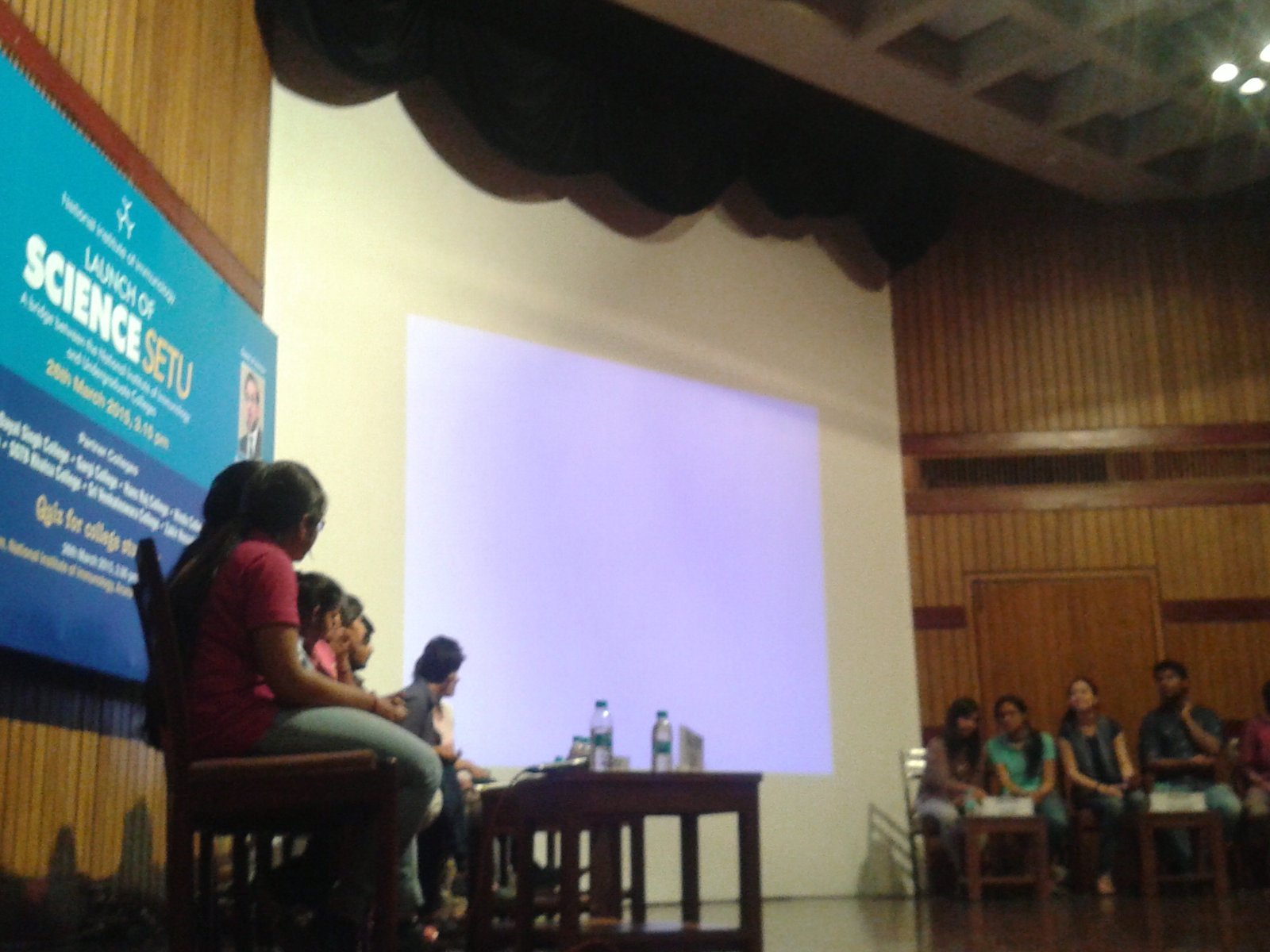Catalyst of change!
April 06, 2015 | Monday | Features | By Rahul Koul Koul
Science SETU: Students participate in a quiz held at NII, Delhi on March 26, 2015
The lack of enthusiasm towards science has been a major reason why the students at undergraduate level don't opt for science as a career. The gap between enough faculty and those who could be potential scientists and innovators is because of either lack of right teachers or mentors. However, so far nothing had been done to address the issue.
Now as a first step towards the right direction, Delhi-based premier research organization, National Institute of Immunology (NII) has come up with Science SETU, a program aimed at bridging the gap between the lower education and top research institutes. Aimed at encouraging youngsters to take up science as a career, the programme is a first of its kind initiative by NII supported by the Department of Biotechnology, ministry of science and technology. The initiative launched on March, 26, as a follow up on the Prime Minister, Mr Narendra Modi's teacher's day speech wherein he had called upon Indian scientists to actively involve themselves in teaching in schools and colleges. The institute's governing body had earlier approved the proposal on November, 12.
Through this initiative, the institute has tied up with 10 colleges in Delhi. The MoU has been signed with ten prominent colleges in Delhi including Daulat Ram Collge, Dayal Singh College, Gargi College, Hans Raj College, Hindu College, Miranda House, Ramjas College, SGTB Khalsa College, Sri Venkateshwara College and Zakir Hussain College. On the occasion a quiz competition anchored by Dr Uma Chandra Mouli Natchu, scientist, Translational Health Science and Technology Institute (THSTI) was also held to check the basic science knowledge of students, who performed above the expectations.
The primary objectives of the program are to address the changing needs of teaching, learning and research in biological sciences. It will also link NII in the spirit of success through access to undergraduate teaching in biological sciences and to engage a talent pool of potential biology students in the delivery of innovation, research and continuous development. The initiative through all the above, is being seen as a catalyst of change.
As per Dr Chandrima Saha, director, NII, "Technology dissemination has to be ensured through proper means of communication and through this programme, we hope to reach out to young minds that deserve to be in science."NII intends to commence this commence it from July 2015 or earlier as per needs of individual partners. Under this program, every permanent faculty member of NII is expected to spend at least 12 hours per year in an undergraduate college. More colleges are likely to be recruited. The program has generated a great deal of goodwill and excitement among the academic community and will benefit both partners.
In his speech at the launch of program, Dr K Vijay Raghavan, secretary, DBT, mentioned, "Abstraction of science being elite is no longer valid. There is tremendous scope for developing solutions for interesting questions and for that one doesn't have to be from any particular level of society." Dr Raghavan advised students to follow the path they love and not take science just a medium to earn quick bucks.
The experiment is set to be replicated at the national level quite often. NII and its partner colleges will interact, through mutual consultation and formal partnership to meet the goal and objectives of the programme. NII scientists will engage with the colleges on-site and or through e-learning approaches, depending on feasibility. This commitment shall be treated as a national service intrinsic to the mandate of NII and the partner college and shall neither involve remuneration nor be treated as a cause for modification of nay current institutional goals. Enough flexibility will be built in to ensure that the programme adds value to undergraduate education. The level of management and the best time to commence the programme will be decided through mutual consultation.
Appreciating the program, Prof. Raghavendra Gadagkar, president Indian National Science Association (INSA), and senior scientist, Indian Institute of Science (IISc), Bangalore, Called it a unique experiment. In a highly interesting pep talk to the students, he opined, "We can't blame students for not choosing the classical biology as their career option. We have to make it attractive enough. Integrating natural and human sciences by removing the shackles of discipline, is a great way forward."
Dr S Natesh, consultant, NII and ex-advisor, DBT told the BioSpectrum that he has very high expectations from the programme and hoped that it will fulfil the long standing demands for effective science communication.
Although it should have already been the part of their agenda, it is heartening to see public institutes now coming out of their typical role of just basic research and doing their bid to build awareness about science. The need of the hour is to integrate science communication with research and hopefully more such initiatives will emerge shortly.









